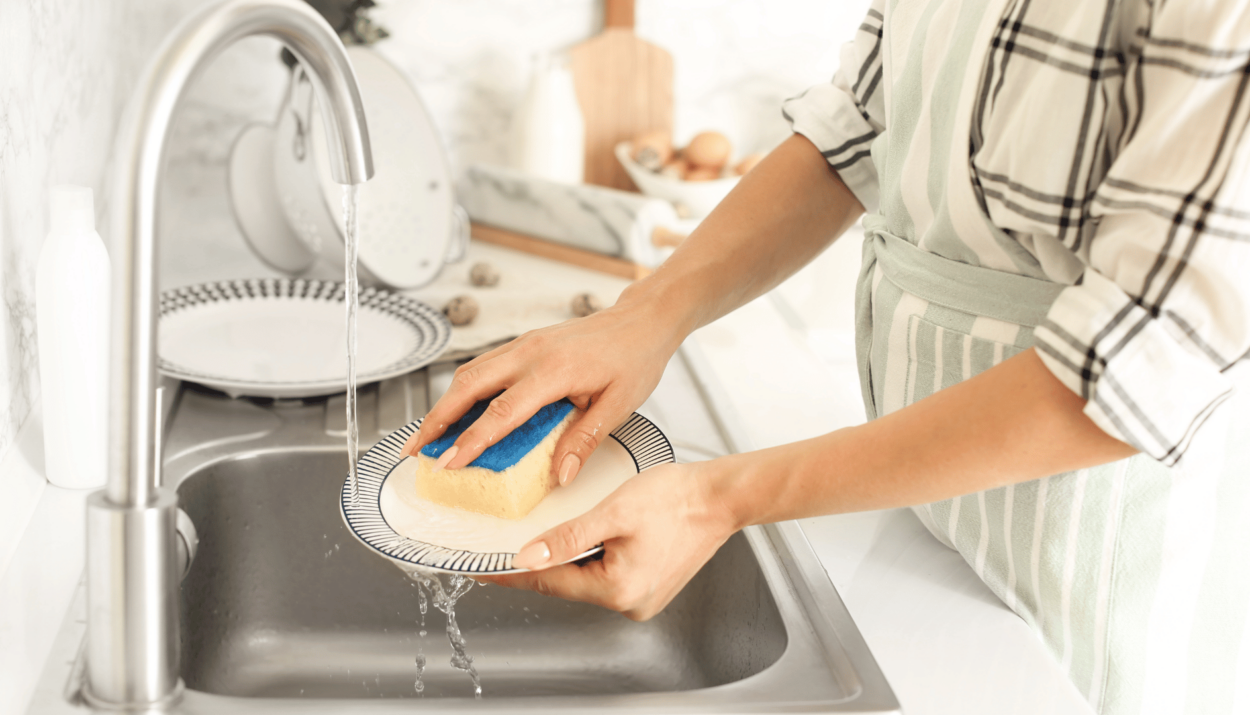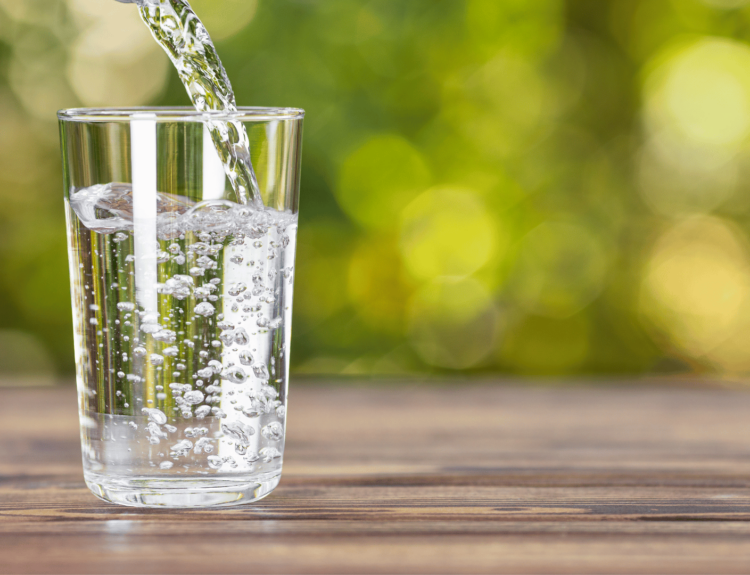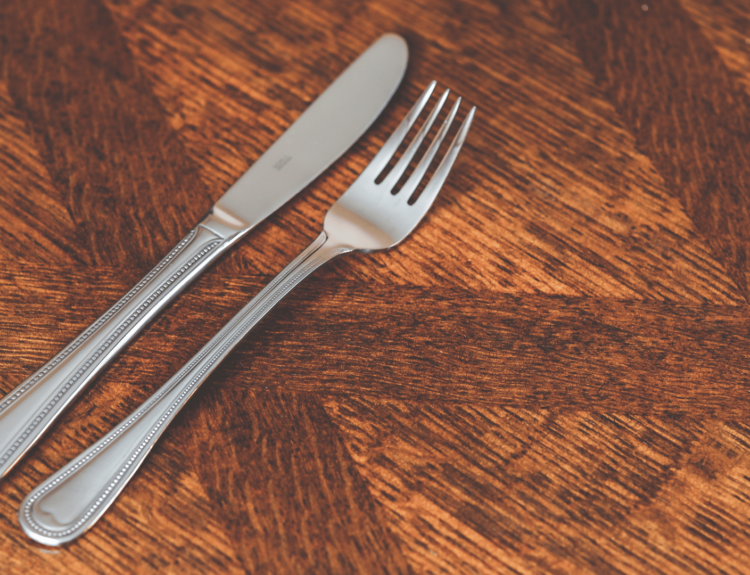Have you ever run out of dish soap and thought of using laundry detergent? Before you do that, understand the risks. In this blog, we’ll look at laundry detergent’s composition, dangers of using it to wash dishes, and other options to consider. Let’s find out if it’s safe to use laundry detergent for dishwashing.
Laundry Detergent Composition
Laundry detergent is formulated specifically for use in washing machines to clean and remove stains from clothing and textiles. It contains various chemicals, including harsh chemicals, bleach, enzymes, brighteners, and softeners, which work together to achieve effective cleaning and stain removal. However, the composition of laundry detergent is not designed for dishwashing, and using it to wash dishes can have potential risks and consequences.
The Various Ingredients in Laundry Detergent
Laundry detergent comprises a combination of various chemicals, such as enzymes, surfactants, and brighteners, making it an effective cleaning agent. Enzymes play a crucial role in breaking down organic and inorganic stains and debris, while surfactants lower the surface tension of water, aiding its penetration into fabrics. Additionally, brighteners absorb UV light and emit blue light, enhancing the brightness and cleanliness of clothes. These ingredients work synergistically to ensure optimal cleaning and stain removal, catering to diverse cleaning needs and delivering remarkable results. The composition of liquid laundry detergent includes a blend of these components, making it a common pantry staple for laundry and other cleaning purposes.
Potential Risks of Ingesting These Ingredients
Ingesting the ingredients in laundry detergent can pose serious health risks. Harsh chemicals, various chemicals, and bleach found in laundry detergent can be harmful if swallowed, potentially leading to gastrointestinal issues, irritation, and other health complications. While the amounts of these ingredients may be relatively low, repeated and prolonged exposure to them through dishwashing can have adverse effects on your health, especially if you have sensitive skin or allergies. It’s important to avoid ingesting laundry detergent and to use it only as intended for laundry purposes.
Dangers of Using Laundry Detergent for Dishwashing
Using laundry detergent for dishwashing can pose several dangers, particularly for those with sensitive skin or allergies, and even for individuals with normal skin. The harsh chemicals and enzymes present in laundry detergent can cause skin irritation and allergic reactions. Constant exposure to laundry detergent during dishwashing can lead to dryness, redness, and itchy skin. Furthermore, the residue left behind by laundry detergent can affect the taste and quality of the food. It is essential to be aware of these risks and explore safer alternatives for washing dishes.
Possible Skin Reactions
For people with sensitive skin, using laundry detergent to wash dishes can trigger various skin reactions. The harsh chemicals and enzymes found in laundry detergent can cause skin irritation, dryness, and redness. Prolonged exposure to these chemicals while washing dishes can result in itchy skin and even a rash. It is important to prioritize skin health and consider alternatives to laundry detergent when it comes to dishwashing, especially if you are prone to skin allergies or have sensitive skin.
The Need for Double Rinsing and Hot Water
When using laundry detergent to wash dishes, it is necessary to perform a thorough double rinsing process to ensure no residue is left behind. Laundry detergents are formulated to be rinsed out during the washing machine cycle, but without a proper rinsing process, the detergent residue can cling to dishes and utensils. Additionally, hot water is essential in dishwashing to help remove laundry detergent residue and suds, ensuring dishes are clean and free from any lingering detergent. Double rinsing with hot water is crucial when using laundry detergent to wash dishes to remove any potential residue, making them safe to use and preventing any unwanted tastes or odors.
Problems with Using Laundry Detergent in Dishwashers
Using laundry detergent in dishwashers can lead to several problems. Firstly, laundry detergent can cause excessive sudsing, leading to dishwasher malfunctions, leaks, and poor cleaning performance. Dishwashers are designed to work with dishwasher detergent, which is specifically formulated to produce low suds and effectively clean dishes. Additionally, laundry detergent can leave behind residue and buildup, affecting the overall performance of the dishwasher. Over time, this residue can accumulate and potentially damage the dishwasher’s internal mechanisms, resulting in costly repairs or even the need to replace the appliance altogether. When it comes to dishwashing, it is important to use dishwasher detergent specifically designed for use in dishwashers to ensure optimal cleaning and avoid potential damage.
Alternatives to Dish Soap
If you find yourself without dish soap and need an alternative, there are safe and effective options to consider. Baking soda, vinegar, and bar soap can be used as alternatives to dish soap, providing cleaning power without the risks associated with laundry detergent. These alternatives are readily available in most households and can effectively remove grease, food residue, and stains from dishes. Let’s explore these alternatives further and how they can be used in dishwashing.
Baking Soda as a Soap Substitute
Baking soda, also known as sodium bicarbonate, is a versatile and effective cleaning agent that can be used as a substitute for dish soap. It can help remove grease, food residue, and stains from dishes, making it a suitable alternative in dishwashing. To use baking soda, simply sprinkle it on a damp sponge or dishcloth to create a cleaning paste. Use the baking soda paste to scrub and clean dishes thoroughly, rinse with hot water, and dry before use. Baking soda is a common pantry staple and can be a valuable addition to your dishwashing routine, providing effective cleaning power without the potential risks of using laundry detergent.
Other Household Items That Can Be Used for Dishwashing
When cleaning dishes, several common pantry staples can be used as alternatives to traditional dish soap. White vinegar, known for its effective cleaning properties, is a natural substitute for handwashing dishes. Similarly, lemon juice not only provides a fragrant alternative to dish soap but also possesses natural cleaning abilities. Salt, acting as an abrasive agent, can effectively remove tough residues from dishes. Additionally, club soda serves as a sparkling alternative to dish soap for cleaning and washing dishes. In the absence of dish soap, a sparing use of olive oil can help remove grease and food residue from dishes. These household items offer effective and eco-friendly alternatives for maintaining cleanliness in dishwashing.
The Protocol of Washing Dishes Without Dish Soap
When you find yourself without dish soap, it’s helpful to have a protocol in place to ensure you can still effectively clean your dishes. While dish soap is the preferred option, you can follow alternative protocols to meet your cleaning needs. Let’s explore the step-by-step guide to washing dishes without dish soap and how different alternatives can be used for handwashing dishes.
Step-by-Step Guide to Washing Dishes with Baking Soda
When it comes to washing dishes with baking soda, the process is straightforward and effective. Begin by sprinkling baking soda on a damp sponge to create a cleaning paste for washing dishes. Use this paste to scrub and clean dishes, utensils, and cookware thoroughly. After cleaning, rinse the dishes with hot water to ensure all baking soda residue is removed, leaving them clean and residue-free. Once rinsed, dry and inspect the dishes to ensure they are free of any baking soda residue and are clean and ready for use. Additionally, baking soda can also be used to soak and loosen tough food debris before handwashing dishes for effective cleaning. This common pantry staple is an effective cleaning agent and a great alternative to traditional dish soap.
How to Use Other Alternatives for Cleaning Dishes
When washing dishes, there are effective cleaning agents that can be used as alternatives to traditional dish soap. You can combine white vinegar with hot water to create a powerful dishwashing solution that effectively cleans dishes and removes grease. Another natural alternative is to dilute lemon juice with water, providing a pleasant citrus-scented option for dishwashing. Additionally, salt can be mixed with hot water to scrub and clean dishes, offering an effective and natural cleaning alternative. Club soda is another useful option, as pouring it over dirty dishes helps to lift food residue and grease, making dishwashing more effective. For stubborn food residue and grease, using olive oil sparingly can be an effective natural alternative to remove tough stains from dishes.
The Implications of Using Laundry Detergent for Dishwashing
Using laundry detergent for dishwashing can have several implications, both for your health and the environment. It is important to consider these implications before using laundry detergent as an alternative to dish soap. Let’s explore the long-term effects on your health and well-being, as well as the environmental impact of using laundry detergent for dishwashing.
Long-term Effects on Your Health and Well-being
Continued use of laundry detergent for dishwashing can have potential long-term effects on your health and well-being. The harsh chemicals and enzymes in laundry detergent can lead to skin irritation, especially for individuals with sensitive skin. Prolonged exposure to these chemicals can result in dryness, redness, and skin allergies. Additionally, inhaling the fumes of laundry detergent during dishwashing can irritate the respiratory system. It is important to prioritize your health and explore safer alternatives for washing dishes to minimize the risks associated with using laundry detergent.
Environmental Impact of Using Laundry Detergent for Dishwashing
Using laundry detergent for dishwashing can have significant environmental impacts. The harsh chemicals and various chemicals present in laundry detergent can contribute to water and soil pollution when washed down the drain. These chemicals can disrupt ecosystems, harm aquatic life, and contaminate water sources. Additionally, the production and disposal of laundry detergent can have a negative carbon footprint and contribute to environmental degradation. It is crucial to be mindful of the environmental impact of our cleaning choices and opt for eco-friendly alternatives for dishwashing whenever possible.
The Verdict: Is It Wise to Use Laundry Detergent for Washing Dishes?
Considering the potential risks to your health and the environment, it is not advisable to use laundry detergent for washing dishes. While laundry detergent is effective for cleaning and stain removal in laundry, it is not formulated for use on dishes and can have adverse effects. The difference between laundry detergent and dish soap lies in their respective compositions and formulations, with dish soap specifically designed for dishwashing and laundry detergent for laundry. To ensure the cleanliness and safety of your dishes, it is always recommended to use dish soap or safer alternatives specifically formulated for dishwashing purposes.
Frequently Asked Questions
Are there any situations where it is safe to use laundry detergent on dishes?
While it is not safe to use laundry detergent on dishes due to harmful ingredients, in emergency situations where no other options are available, a small amount of dish soap can be used. However, it is always recommended to use a mild dishwashing detergent specifically formulated for dishes.
What are the potential risks or consequences of using laundry detergent on dishes?
Using laundry detergent on dishes can have potential risks and consequences. Laundry detergent is not formulated for use on dishes and may contain harmful chemicals. It may leave a residue or taste on the dishes, and it can be harsher than dish soap, potentially damaging delicate dishes or cookware. To ensure safety and effectiveness, it is best to use a designated dish soap for washing dishes.
Conclusion
It is not wise to use laundry detergent for washing dishes as it may harm the skin and the appliance. Laundry detergents have harmful ingredients that require double rinsing and hot water to clean properly, which can still cause skin reactions. There are other household items like baking soda that can be used instead of dish soap, but one should consider the health and environmental hazards. It is better to use proper dish soap for washing dishes to remain safe and effective.





